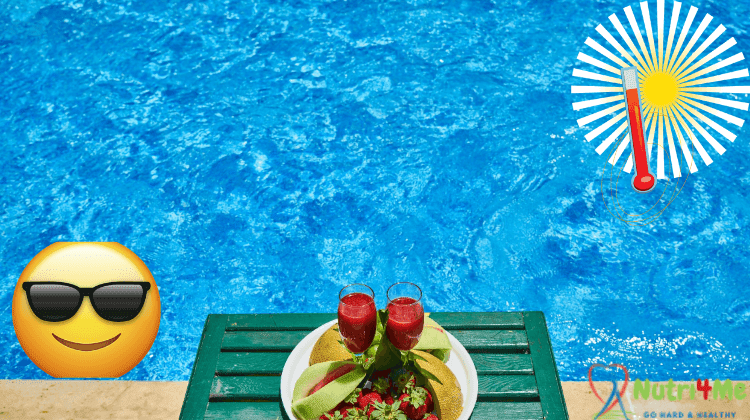We often ask ourselves several questions related to food when it's hot, such as: Drink very cold, or even iced? Eat salads? Cold soups?
In summer, the water losses due to heat are more important, even more important during heat waves. It is therefore necessary to drink 1.5 to 2 liters of water regularly every day without waiting to be thirsty.
Even cool, or even ice-cold, water gives a feeling of freshness, but that does not mean that the body will be more hydrated. In fact, the situation is exactly the opposite: the human body has to heat the water that is too cold not to interfere and disrupt its functioning, so the energy supplied will warm the whole body.
This is counterproductive, as the human body maintains its temperature around 37 ° C in various ways, which tends to increase body temperature.
The cool effect of mint is well known. This effect is attributed to menthol (the main active molecule in mint) (5). This is why menthol is added to chewing gum, toothpaste, etc.
Mint, consumed as an aromatic herb or herbal tea, has refreshing properties. Simply infused in slightly cold water with a little lemon, it will make a deliciously hydrating detox water.
4. Consume Foods rich in water
Foods rich in water are also important allies in increasing the body's water content (3). These especially include cucumber, zucchini, watermelon, melon, radish, celery, tomato and lettuce.
As long as it is pure, coconut water can help the body to hydrate well, so in hot weather, like mineral water, it can help compensate for mineral loss caused by sweat.
It is best to avoid excessive consumption of coffee and tea, as they are diuretics and therefore increase the amount of urine, thus removing water. Remember that in the event of a heat wave, we try to improve hydration, not dehydration!
Take herbal teas or lightly brewed tea and drink them warm rather than hot. This will prevent your body from releasing too much heat and therefore making you sweat, which would make you lose water.
6. Avoid foods rich in protein
Preference for cold dishes, so as not to unnecessarily run your tired body, so that you can stay at the right temperature all day. What is certain is that when you eat a plate of cheese or a plate of soy sauce, calories and salty foods, the body needs more energy to digest and therefore increases the body temperature. In addition, in the summer the body needs to "reduce fat".
It is important to avoid foods that are too salty when the thermometer is rising. They will certainly promote thirst and thus promote hydration, but the accumulated salt will retain water, thus affecting the hydration of the body. Remember that in hot weather cold meats, smoked fish and chips, appetizer cakes and dried fruit should be removed from the menu.
9. Alcohol consumption
Not only does he not hydrate, but he gets dehydrated first! Therefore, at high temperatures (even small evening appetizers) should be avoided completely.
According to some studies, vitamin C can reduce the effects of metabolic heat stress. A study has shown that vitamin C supplementation (250 or 500 mg per day) can improve caloric capacity Therefore, eating foods rich in vitamin C can also be a good way to help the body to regulate temperature better . Foods rich in vitamin C in the summer include black currants, lemons, and strawberries.












0 Comments